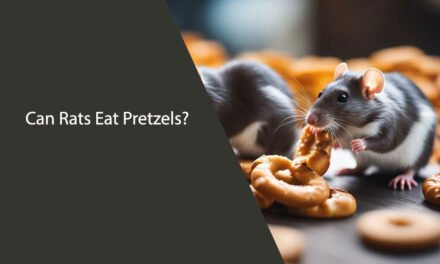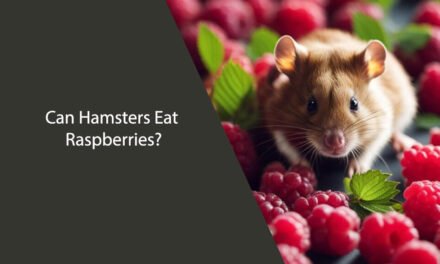Leopard geckos are a popular pet reptile due to their docile nature and low maintenance requirements. As with any pet, it’s important to provide them with a balanced and nutritious diet. One common question that arises is whether leopard geckos can eat hoppers, which are a type of insect commonly used as feeders for reptiles.
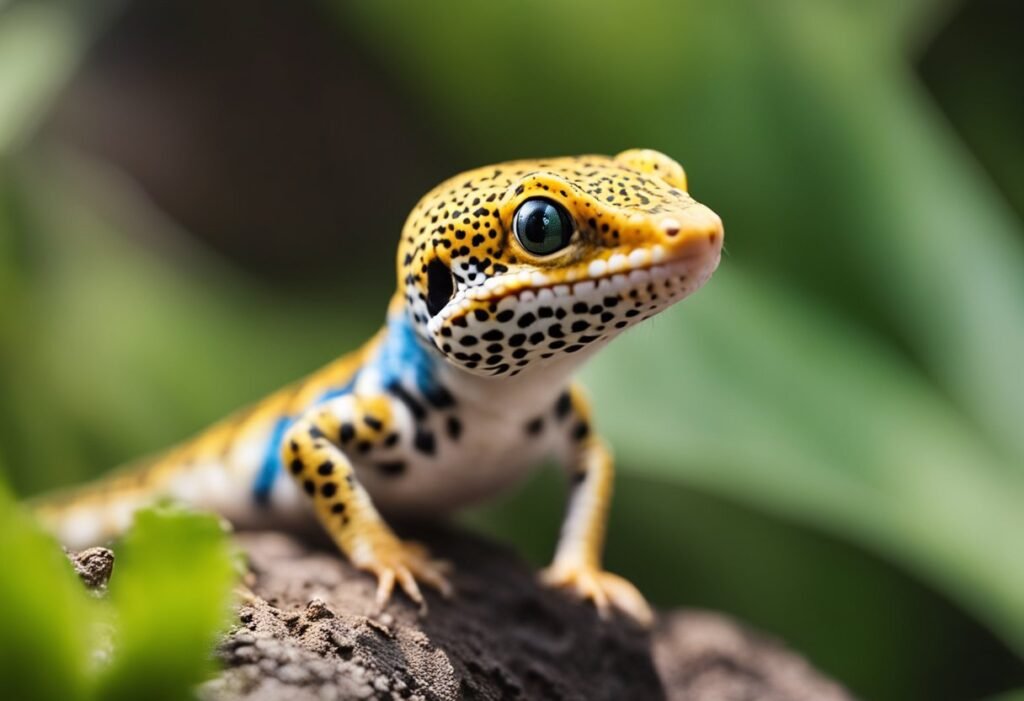
The short answer is yes, leopard geckos can eat hoppers. In fact, hoppers are a popular feeder insect for leopard geckos due to their small size and high protein content. However, it’s important to ensure that the hoppers are appropriately sized for your leopard gecko and that they are gut-loaded with nutritious food before feeding them to your pet. In this article, we’ll explore the benefits and potential drawbacks of feeding hoppers to leopard geckos, as well as provide tips for ensuring your gecko’s diet is healthy and balanced.
Table of Contents
Leopard Gecko Dietary Basics
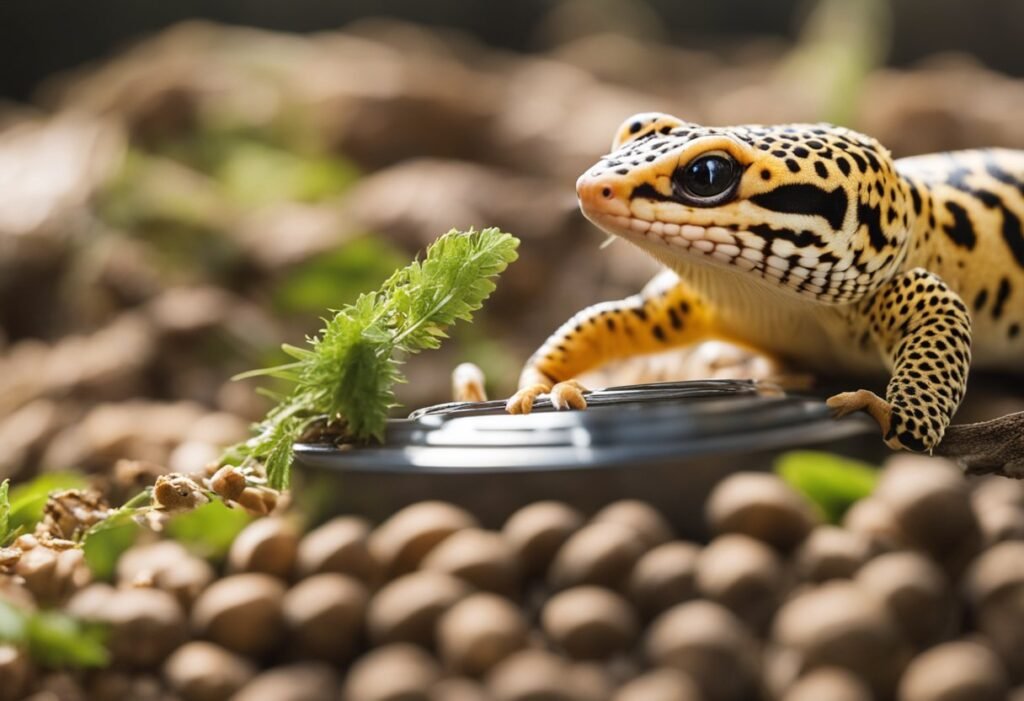
Leopard geckos are insectivores, which means that their diet consists mainly of insects. Feeding your leopard gecko a balanced diet is essential for their health and well-being. Here are some basics to keep in mind when it comes to feeding your leopard gecko:
Variety is Key
It’s important to offer your leopard gecko a variety of insects to ensure they are getting all the necessary nutrients. Some good options include crickets, mealworms, waxworms, and dubia roaches. It’s also a good idea to dust the insects with a calcium and vitamin D3 supplement to prevent any deficiencies.
Avoid Feeding Wild-Caught Insects
Feeding your leopard gecko wild-caught insects can be risky as they may carry parasites or diseases. It’s best to purchase insects from a reputable supplier to ensure they are safe for your gecko to eat.
Feed Appropriately-Sized Prey
Leopard geckos should be fed appropriately-sized prey to prevent choking or digestive issues. As a general rule of thumb, the prey should be no larger than the width of your gecko’s head.
Water is Important
Leopard geckos should always have access to fresh, clean water. It’s a good idea to provide a shallow dish of water in their enclosure that they can easily access.
By keeping these basics in mind, you can ensure that your leopard gecko is getting a balanced and healthy diet.
Understanding Hoppers as Prey
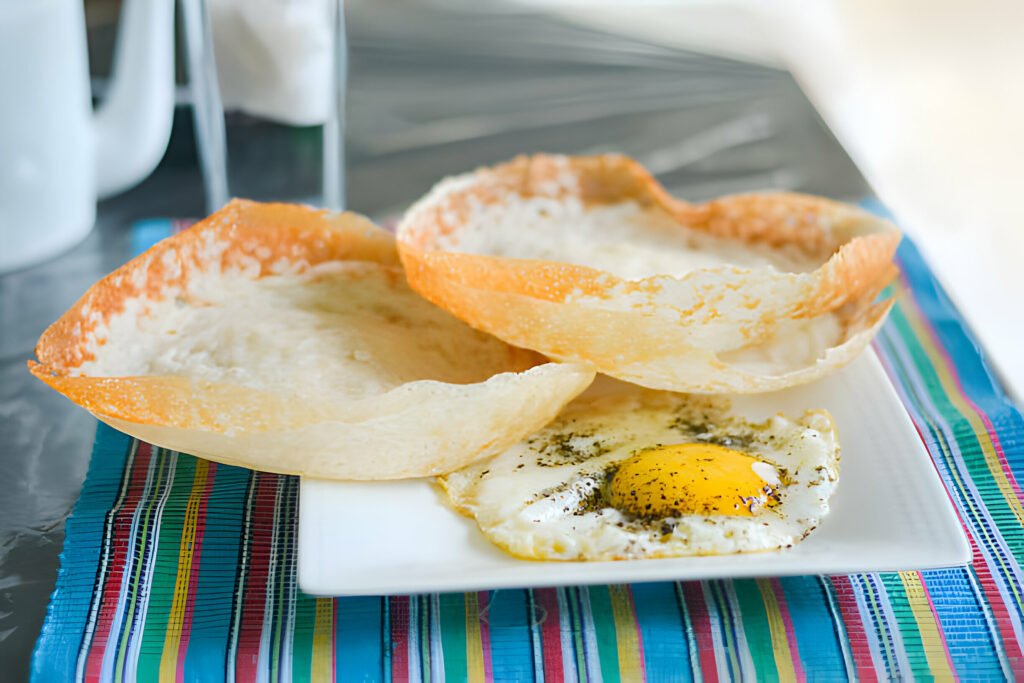
As leopard gecko owners, we know that hoppers are a common prey item offered to our pets. But what are hoppers exactly?
Hoppers are juvenile insects that have not yet developed wings. They are often sold as feeders for reptiles and amphibians, including leopard geckos. Some common types of hoppers offered as prey include crickets, mealworms, and dubia roaches.
When it comes to feeding our leopard geckos, hoppers can provide a good source of protein and other essential nutrients. However, it is important to ensure that the hoppers are of appropriate size for our geckos to avoid choking or digestive issues.
It is also important to note that hoppers should be gut-loaded before feeding to our leopard geckos. This means that they should be fed a nutritious diet themselves so that they, in turn, can provide optimal nutrition to our geckos.
Overall, understanding hoppers as prey is crucial for providing a balanced and healthy diet for our leopard geckos. By selecting appropriate sizes and ensuring proper nutrition, we can help our pets thrive.
Health Benefits of Hoppers for Leopard Geckos
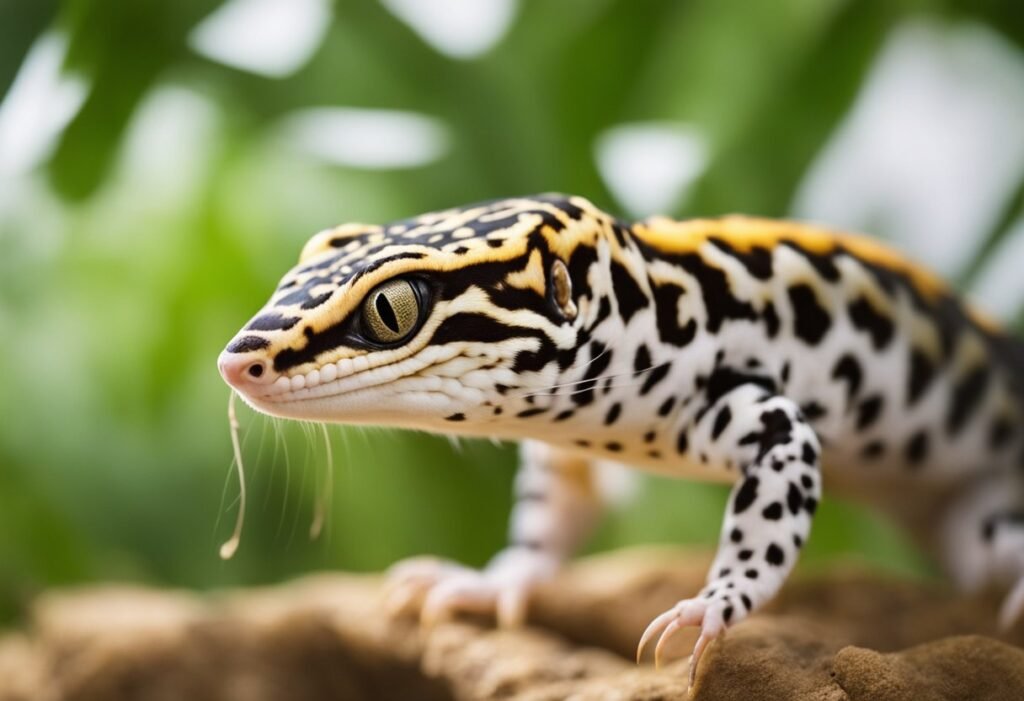
Hoppers, also known as grasshoppers, are a popular food source for leopard geckos. They are rich in nutrients that are essential for the growth and development of these reptiles. In this section, we will discuss the health benefits of hoppers for leopard geckos.
Nutritional Value
Hoppers are a good source of protein, which is necessary for the growth and repair of tissues in leopard geckos. They also contain essential amino acids that cannot be synthesized by the gecko’s body and must be obtained through their diet. Hoppers are also rich in vitamins and minerals such as calcium, phosphorus, and potassium, which are important for the development of strong bones, muscles, and nerves.
Digestibility
Hoppers are easy to digest and are a good food source for leopard geckos that may have difficulty digesting other types of insects. The exoskeleton of the hoppers is soft and easy to break down, making it easy for the gecko to extract the nutrients it needs.
Variety
Leopard geckos require a varied diet to ensure they receive all the necessary nutrients for their growth and development. Hoppers provide an excellent source of variety to their diet and can be fed along with other insects such as crickets and mealworms.
In conclusion, hoppers are a healthy and nutritious food source for leopard geckos. They provide a good source of protein, essential amino acids, vitamins, and minerals that are necessary for the growth and development of these reptiles.
Potential Risks of Feeding Hoppers
When considering feeding leopard geckos hoppers, it is important to be aware of potential risks. While hoppers can provide a nutritious meal for your gecko, they can also pose some dangers.
One risk is that hoppers can be difficult for leopard geckos to digest. Their hard exoskeletons can be tough on the gecko’s digestive system, potentially causing impaction. It is important to ensure that the hoppers are appropriately sized for your gecko and that they are properly gut-loaded to provide maximum nutrition.
Another risk is that hoppers can carry parasites or disease. It is important to obtain hoppers from a reputable source and to ensure that they are healthy before feeding them to your gecko. Quarantining new hoppers before feeding them to your gecko can also help to prevent the spread of disease.
Lastly, it is important to note that some leopard geckos may have allergies or sensitivities to certain types of prey. If you notice any unusual behavior or symptoms after feeding your gecko hoppers, it may be best to avoid feeding them this type of prey in the future.
Overall, while hoppers can be a nutritious meal for leopard geckos, it is important to weigh the potential risks before feeding them to your pet. By taking appropriate precautions and monitoring your gecko’s behavior and health, you can help to ensure that they remain healthy and happy.
Feeding Guidelines for Hoppers
When it comes to feeding leopard geckos, hoppers can be a good option. Hoppers, also known as locusts or grasshoppers, are a type of insect that can provide a good source of nutrition for your gecko. However, it is important to follow some feeding guidelines to ensure that your leopard gecko stays healthy.
Size of Hoppers
When feeding hoppers to your leopard gecko, it is important to choose the right size. Hoppers that are too large can cause digestive problems and even lead to impaction. On the other hand, hoppers that are too small may not provide enough nutrition.
We recommend feeding hoppers that are about the same size as your leopard gecko’s head. This will ensure that the hoppers are easy to digest and provide enough nutrition.
Frequency of Feeding
Leopard geckos should be fed hoppers once or twice a week, depending on their age and size. Younger geckos may need to be fed more frequently, while older geckos may only need to be fed once a week.
It is important not to overfeed your leopard gecko, as this can lead to obesity and other health problems. Make sure to monitor your gecko’s weight and adjust their feeding schedule accordingly.
Gut Loading and Supplementation
To ensure that hoppers provide enough nutrition for your leopard gecko, it is important to gut load them before feeding. Gut loading involves feeding the hoppers a nutritious diet, such as fruits and vegetables, before feeding them to your gecko.
In addition, you may need to supplement your gecko’s diet with calcium and other vitamins and minerals. This can help prevent nutritional deficiencies and promote overall health.
By following these feeding guidelines, you can ensure that hoppers are a safe and nutritious addition to your leopard gecko’s diet.
Preparing Hoppers for Your Leopard Gecko
When it comes to feeding your leopard gecko, hoppers are a great option to provide them with a nutritious meal. However, it’s important to prepare the hoppers properly before feeding them to your gecko.
Firstly, you should ensure that the hoppers are the appropriate size for your leopard gecko. Hoppers that are too big can cause choking or other digestive issues, while hoppers that are too small may not provide enough nutrition. As a general rule, hoppers should be no larger than the space between your gecko’s eyes.
Next, you may want to consider gut-loading the hoppers before feeding them to your gecko. This involves feeding the hoppers a nutritious diet for a few days prior to feeding them to your gecko. This can help to ensure that your gecko is getting the most out of their meal.
When it comes time to feed your gecko, you can either place the hoppers directly into their enclosure or use feeding tongs to offer them to your gecko. It’s important to monitor your gecko while they eat to ensure that they are able to properly swallow and digest their food.
Overall, hoppers can be a great addition to your leopard gecko’s diet when prepared properly. By following these simple steps, you can ensure that your gecko is getting the nutrition they need to thrive.
Alternatives to Hoppers in Leopard Gecko Diet
While hoppers are a common food choice for leopard geckos, there are several other options that can provide a balanced and nutritious diet for your pet. Here are some alternatives to consider:
Crickets
Crickets are a popular alternative to hoppers and are widely available at pet stores. They are a good source of protein and can be supplemented with calcium powder to ensure your gecko is getting enough of this essential nutrient. Crickets can also be gut-loaded with nutritious fruits and vegetables to further enhance their nutritional value.
Mealworms
Mealworms are another common food choice for leopard geckos. They are high in protein and can be fed live or dried. However, it’s important to note that mealworms have a hard exoskeleton that can be difficult for some geckos to digest. To avoid this issue, you can feed mealworms in moderation and ensure they are properly gut-loaded.
Dubia Roaches
Dubia roaches are a nutritious and protein-rich food option for leopard geckos. They are easy to digest and have a soft exoskeleton, making them a good choice for geckos with digestive issues. Dubia roaches can be purchased online or at specialty pet stores.
Silkworms
Silkworms are a less common food choice for leopard geckos, but they are highly nutritious and can be a good option for geckos with specific dietary needs. They are soft-bodied and easy to digest, making them a good choice for geckos with digestive issues. Silkworms can be purchased online or at specialty pet stores.
Overall, there are several alternatives to hoppers that can provide a balanced and nutritious diet for your leopard gecko. It’s important to vary your gecko’s diet and ensure they are getting all the necessary nutrients to maintain their health and wellbeing.
Frequently Asked Questions
Is it safe for leopard geckos to consume grasshoppers?
Yes, leopard geckos can safely consume grasshoppers. In fact, hoppers are a great source of nutrition for your leopard gecko. However, it is important to ensure that the hoppers are not too large for your gecko to consume.
What insects are considered safe for leopard geckos to eat?
Leopard geckos can consume a variety of insects, including crickets, mealworms, and waxworms. These insects are readily available at most pet stores and provide a good source of nutrition for your gecko.
Can leopard geckos be fed wild-caught insects?
It is generally not recommended to feed wild-caught insects to your leopard gecko. These insects may carry parasites or diseases that can be harmful to your gecko. It is best to purchase insects from a reputable pet store to ensure their safety.
Are there any insects that leopard geckos should avoid?
Leopard geckos should not be fed insects that are high in fat, such as superworms or butterworms. These insects can cause obesity and other health issues in your gecko. Additionally, insects that are too large for your gecko to consume should be avoided.
What is the ideal diet for a leopard gecko?
The ideal diet for a leopard gecko consists of a variety of insects, such as crickets, mealworms, and waxworms. It is important to provide a balanced diet that includes both protein and calcium.
How often can leopard geckos be fed insects like hoppers?
Leopard geckos should be fed insects like hoppers every other day. It is important to monitor your gecko’s weight and adjust their feeding schedule accordingly. Overfeeding can lead to obesity and other health issues.


